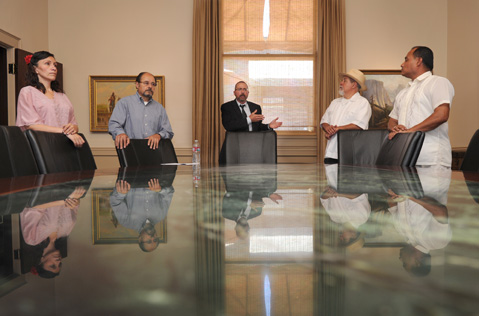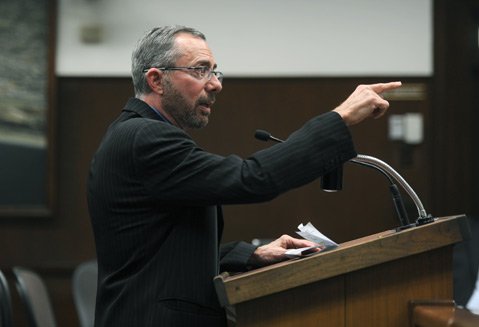
Although a few “i”s remain to be dotted and few “t”s to be crossed, the Santa Barbara City Council voted 6-0 to settle a lawsuit charging that the at-large elections City Hall has conducted since 1971 have yielded “racially polarized” results as defined by the California Voting Rights Act. The five plaintiffs who brought the lawsuit pointed out that only one Latino — Cathy Murillo — had been elected to the council since 2000 even though Latinos make up 38 percent of the population and 24 percent of eligible voters. As part of the settlement, the council agreed to begin holding district elections this November, when three seats come up for grabs.
Boundaries for the six new districts will be drawn up after the public weighs in during four public meetings, the first one taking place this Saturday. According to the terms of the settlement, two of those six districts have to be made up of a “minority-majority,” meaning that Latinos make up a majority of their residents. In addition, City Hall will pay the plaintiffs $599,500 to cover legal fees and the cost of hiring expert witnesses thus far. Mayor Helene Schneider and City Attorney Ariel Calonne both noted that City Hall’s liability could have been as high as $3.5 million had the case gone to trial.

No California city has successfully defended itself against accusations of “racially polarized voting,” and under the terms of the settlement, City Hall makes no admission. “The city has not admitted the existence of racially polarized voting and will not do so,” Calonne said. When asked what the demographic experts hired by the city determined, Calonne replied, “In looking at Santa Barbara and school district elections, you see that some Latino candidates can win election and some cannot.”
Calonne and Schneider both stressed that the key victory City Hall achieved was in preserving the public’s ability to take part in the district-drawing process. “Rather than having a court draw the map, it was of huge value to the council that the public retain its ability to participate,” Schneider said.
“Now the big work begins,” exclaimed Leo Martinez upon hearing news of the settlement. A former city councilmember and longtime advocate of district elections, Martinez — who lives in New Mexico now — qualifies as godfather to the legal action, even though he could not be a plaintiff by dint of his home address. Were it not for Martinez — a longtime personal friend of famed Santa Barbara litigator Barry Cappello — it’s doubtful Cappello would have taken the case. “Had we not had Cappello, we wouldn’t be here today,” Martinez stated.
Cappello and Martinez first met when Martinez ran for City Council in 1973, and Cappello, then the city attorney, fought to ban him from running based on residency requirements. Martinez took the matter to court and ultimately prevailed. He also won the election. Despite this bumpy start, Martinez voted not to fire Cappello as City Attorney when he had a chance to do so. (It’s hardly coincidental that two of the other plaintiffs — Frank Banales and Ben Cheverez — are longtime friends of Martinez; the three helped start La Casa de la Raza more than 40 years ago.) Out of that beginning, an abiding relationship developed between Cappello and Martinez that will fundamentally change how politics is conducted in Santa Barbara for some time to come.

“I hope it results in more diversity on the City Council,” said Murillo, herself ambivalent about district elections. Murillo has long argued that candidate development, not district elections, is more important in getting Latinos and other minorities to run. Now that she’s preparing to campaign for a second term in office, Murillo said she’ll be running as the Westside’s candidate.
Commenting on the changing political landscape, Schneider said, “It will be like electing a mayor of each district. People are going to have to pay more attention to what’s happening where they live.” Under the current at-large system, Schneider noted, voters throughout the city could vote for three candidates — from anywhere in the city — each election cycle. Now voters will get to choose one council candidate every four years, in addition to the mayoral candidate of their choice.
Four of the suit’s five plaintiffs — Banales, Cheverez, Jaqueline Inda, and Sebastian Aldana — have signed the settlement agreement. The only holdout is Cruzito Cruz, a perennial council candidate and activist, who declined repeated requests for interviews. After Cruz stopped talking to his own attorney, Cappello initiated legal actions to discharge Cruz as his client. That matter should be resolved this Friday.



